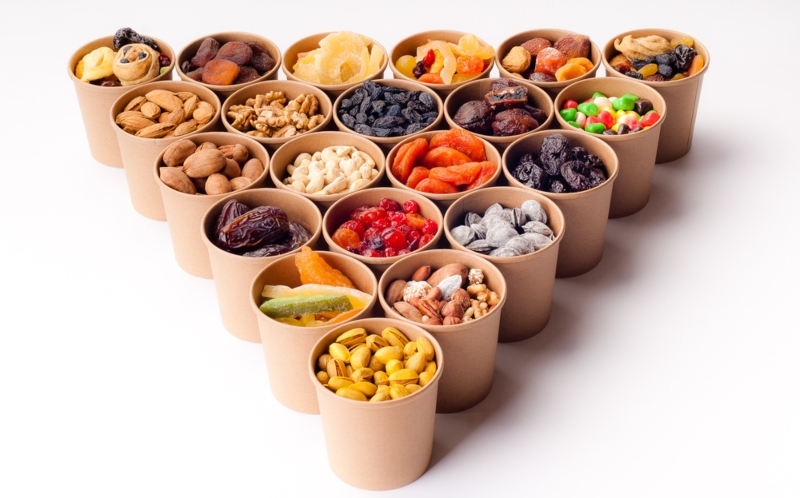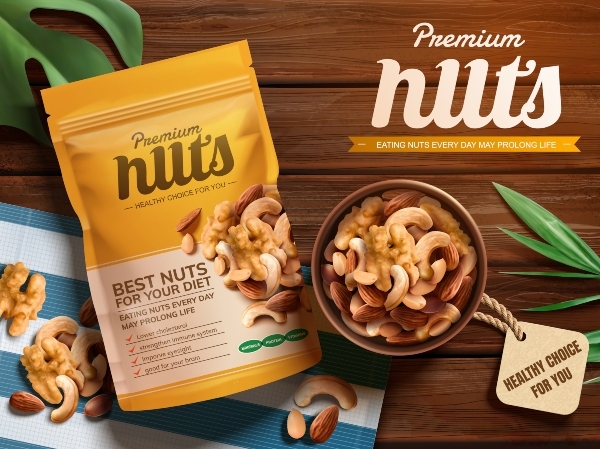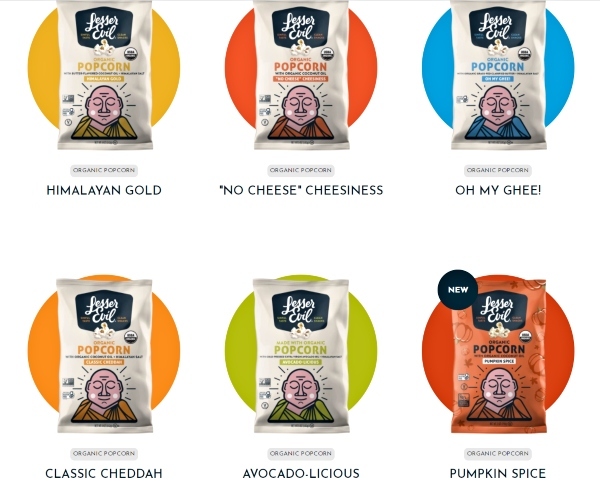
2021-08-23 00:00:00
Selling plant-based meat in America
In the United States, the pandemic accelerated the sale of plant-based meat and cheese: the key lies in targeting and storytelling
https://www.exportusa.eu/plant-based-meat-usa.php (+1) 718-5225575
(+1) 718-5225575

Currently, one of the most prolific sectors of the American economic scenario is the Food and Beverage sector. The food industry is a market never subject to crisis, given the population's primary need to eat regardless of any event that may occur, including pandemics. As a result, the economic performance of the industry does not follow the cyclical trend of the economy. On the contrary, it has generally experienced growth, benefiting from an increase in sales over the last 5 years. Sales increased by 2.1%, registering +1.2% in the first months of 2020 alone, when the Covid emergency had just exploded. From 2015 to the present, the sector has seen a 3.7% annual increase in wages and, at the same, an annual increase in the employment rate of 2.65%.
A special spotlight should be shone on snacks, which are rapidly gaining ground in the eating habits of the average American consumer, with an urban lifestyle and little time to devote to the table. The classic category of snacks includes chips, tortillas, pretzels, peanuts and cashews, sunflower seeds, popcorn and many others. The characterizing element of this sector can be observed in the composition of the demand: the Millennials are the group who rank among the largest consumers of snacks (consuming an average of 4 per day). Back in 2018, an article in the Food Processing magazine had already pointed out that 91% of consumers in America claimed to eat snacks during the day, and 96% of Millennials replaced an entire daily meal with snacks.
the average American consumer, with an urban lifestyle and little time to devote to the table. The classic category of snacks includes chips, tortillas, pretzels, peanuts and cashews, sunflower seeds, popcorn and many others. The characterizing element of this sector can be observed in the composition of the demand: the Millennials are the group who rank among the largest consumers of snacks (consuming an average of 4 per day). Back in 2018, an article in the Food Processing magazine had already pointed out that 91% of consumers in America claimed to eat snacks during the day, and 96% of Millennials replaced an entire daily meal with snacks.
In the future, sales of snacks will increase in America, not only because it is an easy-to-store type of food, but more importantly because it is convenient to eat outside the home. Young people, in particular, tend to prefer snacks with added nutrients (super food), for which they do not hesitate to pay a premium price, which helps to keep the margins of the companies that produce this category of food high. In the US, the impact of Covid has seen quite a few changes in the eating habits of Americans, who have suddenly found themselves at home and without a paycheck and have directed their spending towards pasta and bread, rather than meat and fish, as the former are more satiating and less expensive.
Several market studies have investigated how the current crisis has driven consumers to want to try new flavors, ingredients and brands. The gratification of the palate, however, remains a determining factor in the process of choosing to buy a product. 72% of consumers say that the taste of food is more important than the label, while about half of them buy based on brand awareness, even if the snack is considered unhealthy. This trend has led many companies to review their ranges and launch a large number of new products, also in partnerships. And indeed the hybrid formula appears to be the most popular one with consumers in America. Many brands are now collaborating with each other, with the aim of creating unique products on the market by creating new and innovative flavors.
 Savory snack brands have partnered with specialist confectionery brands, resulting in collaborations such as Herr's and Dippin' Dots, who have launched a line of popcorn-flavored cookies, ice cream and cakes. This mix of flavors is also replicated in the same product category: Heer's has launched Herr's Flavor Mix, a snack concept that combines two different flavors of potato chips in one. Another example is Lesser Evil, which introduced a line of organic popcorn, combining the fruity flavors of lemon with pomegranate or avocado with lychees, just to name a few. The growing segment of the American population forced to change their eating habits as a result of the pandemic, is now more and more inclined to buy packaged snacks of various types that meet the requirements of "convenient to eat" and "good for your health". It is no coincidence that the number of American companies now focusing their production on cereals, seeds, dried fruit and dehydrated vegetables in all possible shapes and sizes is increasing rapidly. These also include the Italian company Pedon: a multinational company from Vicenza and leading legume producer which has created a line of snacks combining legumes, fruit, vegetables and spices, available in single-serving portions, mainly dedicated to the US market.
Savory snack brands have partnered with specialist confectionery brands, resulting in collaborations such as Herr's and Dippin' Dots, who have launched a line of popcorn-flavored cookies, ice cream and cakes. This mix of flavors is also replicated in the same product category: Heer's has launched Herr's Flavor Mix, a snack concept that combines two different flavors of potato chips in one. Another example is Lesser Evil, which introduced a line of organic popcorn, combining the fruity flavors of lemon with pomegranate or avocado with lychees, just to name a few. The growing segment of the American population forced to change their eating habits as a result of the pandemic, is now more and more inclined to buy packaged snacks of various types that meet the requirements of "convenient to eat" and "good for your health". It is no coincidence that the number of American companies now focusing their production on cereals, seeds, dried fruit and dehydrated vegetables in all possible shapes and sizes is increasing rapidly. These also include the Italian company Pedon: a multinational company from Vicenza and leading legume producer which has created a line of snacks combining legumes, fruit, vegetables and spices, available in single-serving portions, mainly dedicated to the US market.
In the United States, not only small companies, but also giants such as the Pepsi group, are adapting to the new market needs. At the moment, a technology is being developed to reduce the oil content in chips and add nutritional values to products, in order to make them healthier and meet the demand of the future. Pepsi has also launched the "Do Us a Flavor" marketing campaign to engage consumers in the manufacturing process, by urging them to send in ideas and help develop a new product, with the goal of intercepting emerging taste trends. In this sense, product innovation is closer than you might imagine: some snack lines already on the market will in fact be enriched with healthier ingredients. Companies now know that a large part of the population in America is becoming increasingly aware of issues such as the incidence of malnutrition with obesity and diabetes for example, and the importance of a balanced diet in ensuring good health. Therefore, products with health benefits bearing clean label claims will increasingly appeal to American consumers.
The economic conditions are expected to grow over the next 5 years, leading American consumers to spend more on high-end brands for foods that are considered more natural and healthy. Not surprisingly, a stable industry growth of 0.9% is predicted to reach $47 billion in 2025, with the number of manufacturing plants increasing by 1.8% annually. Emerging companies are likely to immediately enter the market with an innovative approach and offerings geared to cater for current and future trends, targeting healthy niche markets and organic products.

In the United States, the pandemic accelerated the sale of plant-based meat and cheese: the key lies in targeting and storytelling
https://www.exportusa.eu/plant-based-meat-usa.php
A Canadian company has launched a beer for dogs, responding to the needs of American consumers
https://www.exportusa.eu/beer-for-dogs-usa.php